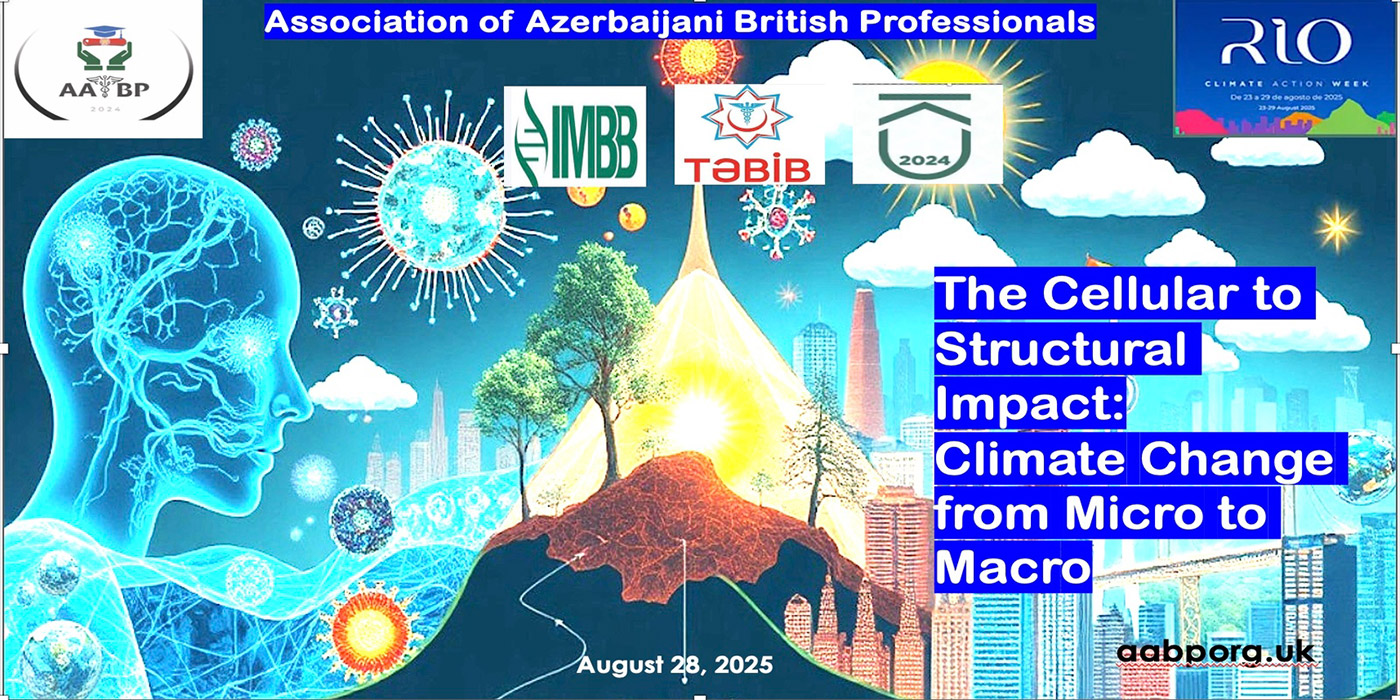The Cellular to Structural Impact: Climate Change from Micro to Macro
Overview:
This event explores the intricate and interconnected effects of climate change across scales—from cellular biology to large-scale infrastructure and ecosystems. As the world moves toward COP30, it is vital to understand how climate stressors affect both the microscopic mechanisms of life and the macroscopic systems that support human civilization. This interdisciplinary gathering aims to foster collaboration between scientists, health professionals, policymakers, and environmental experts to build adaptive strategies informed by micro- and macro-level climate dynamics.
– Cellular-level impacts of environmental stressors driven by climate change
– Structural transformations in public health, urban systems, and ecosystems
– Cross-disciplinary approaches to climate resilience and adaptation
Agenda:
1. Overview of “Micro to Macro” perspectives on climate change
– Outline of the day’s agenda
2. Keynote Address
Topic: From Cells to Cities: Adapting Across Scales in a Changing Climate
Speakers:
– Dr Ilhama Jafarli (MD MRCS FACS FEBPS PhDc CAA / Founder of AABP)
– Prof Atilla Senayli (Yozgat Bozok University/AABP)
– Prof Munther Haddad (BAPS Ex-president/AABP)
– Mr Fagan Hasanzade (Karabakh University, CAO, PhDc /AABP)
– Mr Teymur Mirzabeyli (TEBIB, Head of Training and Research Department)
– Mrs Aygun Badalova (UCL, PhDc, Neurorehabilitation/AABP)
– Ms Madina Amiraslanova (UCL, Student, Cancer Sciences /AABP)
3. Thematic Sessions
Session 1: Cellular Impacts of Climate Stressors
– Integrating data and action from molecular biology to global systems, including the effects of climate change on genes and androgen receptors.
– Exploring how rising temperatures, pollutants, and environmental shifts affect cellular function and disease
Session 2: Structural Responses to Climate Change
– Examining infrastructure, healthcare systems, and city planning through a climate resilience lens
Session 3: Bridging Micro to Macro: Interdisciplinary Adaptation Models
– Case studies and collaborative frameworks
Objectives / Expected Outcomes:
– Deepen cross-scale understanding of how climate change impacts health, systems, and society
– Share models and innovations for resilience that connect biology, environment, and infrastructure
– Create a platform for interdisciplinary collaboration ahead of COP30
– Formulate actionable recommendations that link cellular science with structural adaptation strategies in global climate policy



